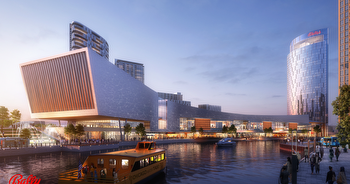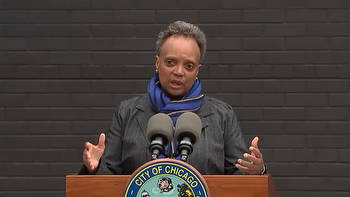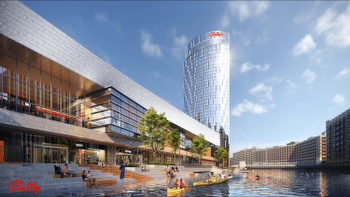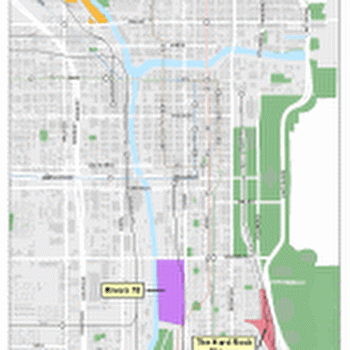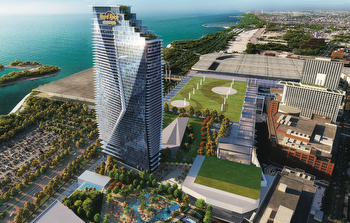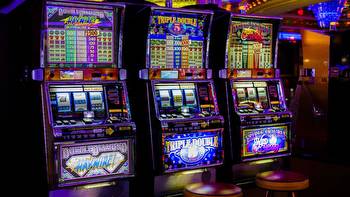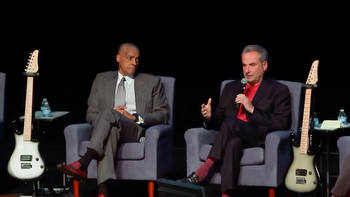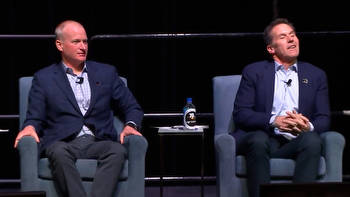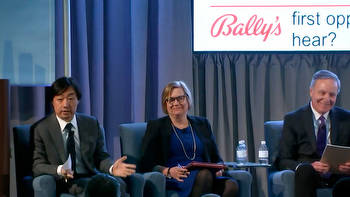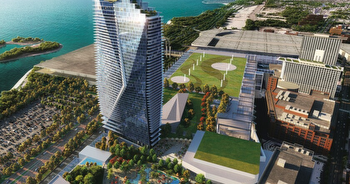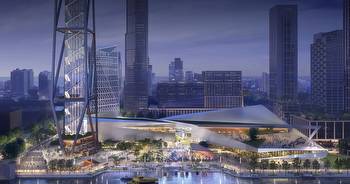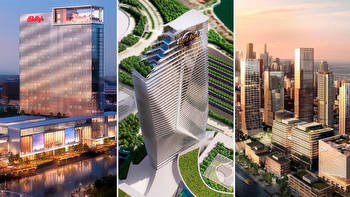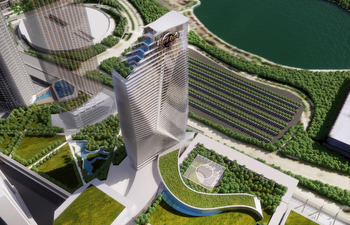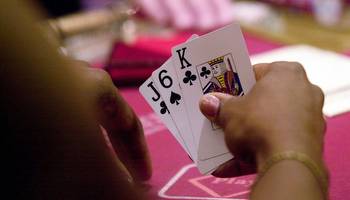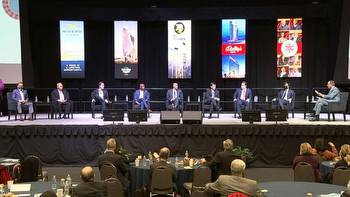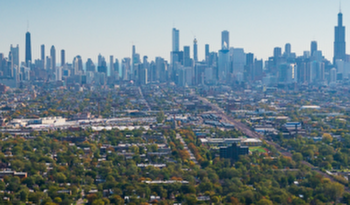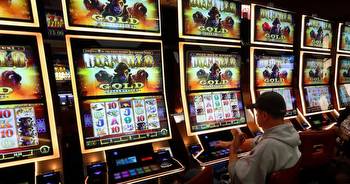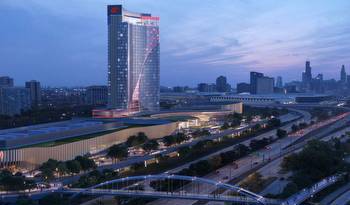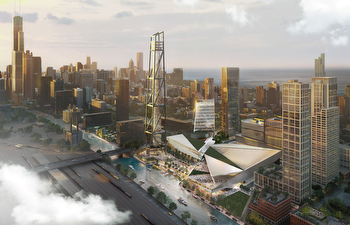Hard Rock kickstarts Chicago casino project's public meetings, denies ties to larger ONE Central development

Hard Rock was the first of the three finalist Chicago casino bidders to publicly present its project on Tuesday, in the process to win the city's sole casino license.
Along with the other two contenders, Bally’s and Rush Street Gaming's Rivers 78, the operators will try to win over nearby residents on the idea their casinos won’t disrupt daily life while providing hundreds of millions in tax revenue to shore up the city’s underfunded police and fire pensions. On Tuesday at the Harold Washington Library, and led by Hard Rock Chairman Jim Allen, the company particularly tried to convince a skeptical audience its proposal wasn’t tethered to a larger development in need of $6.5 billion in state assistance.
Martina Hone, the city’s chief engagement officer, anticipated that there could be “many strongly held and sincere views” shared during the presentation, but “screaming and hollering” is not going to be the only factor for the city when picking a winner.

Hard Rock presented its plans for a $1.74 billion entertainment complex located on a portion of the site known as ONE Central, built over train tracks west of Soldier Field, featuring a 3,000 slot machine and 1,166 table games, a 3,500 seat Hard Rock Live entertainment venue, 500-room hotel, a spa, rooftop space, “several” restaurants and six bars. The project could bring in $185 million in tax revenue six years after it opens to the city, according to a city analysis.
Hard Rock's team —a joint venture between the majority owners, the Seminole Tribe of Florida and a collection of investors that includes Bob Dunn’s Landmark Development and Black-owned Loop Capital— looked to convince the audience, and city officials sitting in the front row, that it can move forward with the casino even if the $6.5 billion in state assistance needed for the larger One Central development doesn’t materialize.
Marj Halperin, a South Loop resident, kicked off the question-and-answer portion of the meeting saying, “you put together a comprehensive proposal, but One Central is the millstone around your neck. The community doesn't want it,” Crain's Chicago Business reports.
In response, One Central developer Dunnsaid that Hard Rock Chicago’s financial future is in no way “tied” to the larger One Central. “(Hard Rock) is separately financed, separately designed, will be separately built, owned, etc., from any eventual development of One Central,” he said.

“We have nothing to do with the massive project for One Central. That's separate from us,” said Jim Allen, before making a commitment the casino development will not “take one penny of . . . subsidies on this casino.”
However, Dunn later conceded the team would work with the city to determine if Hard Rock would pursue a separate planned development—a city zoning designation for large developments that guides the size and scope of buildings—for the casino or if it would be part of a larger planned development to include One Central.
The company also touted itself as the most diverse development team of the three finalists. Jim Reynolds, the Black CEO of Loop Capital, told the crowd only their proposal includes minority involvement in the highest levels of the business partnership. The other teams will include minority investors as limited partners where they will “have no influence” in the decision making of the casino.

According to Hard Rock, the temporary casino can be up and running by the second quarter of 2023, while its permanent location would open in the third quarter of 2025, although a city analysis deemed that timeline “aggressive.”
Allen said the company “accepts” that their initially proposed temporary casino at a smaller building in the McCormick Place complex would not work, so instead the company has looked at other sites, including a “promising” conversation with an unnamed hotel. In February, Larita Clark, CEO of the Metropolitan Pier and Exposition Authority (MPEA), which owns McCormick Place, warned that the property was waiting for the city or the developers to talk with them in order to rethink any of its convention center facilities as a casino. "Given MPEA concerns around contiguous connections between convention and casino space, Hard Rock Chicago has expressed its willingness to explore the potential for locating a temporary casino facility within a hotel or an alternate location," the final report of the project released last month said.
On Wednesday, the Tribune Publishing Plant will host Bally’s presentation, which hopes to build a casino at the Tribune Publishing site along the Chicago River between Chicago and Grand Avenues. Led by the River North Neighbors Association, there is expected to be vocal opposition to the proposal.
On Thursday, at Isadore and Sadie Dorin Forum, local casino magnate Neil Bluhm’s joint effort with Related Midwest at The 78 mega-development will present plans before the audience.
Both meetings will take place from 6 p.m. – 8 p.m. CT and will be live-streamed.
Following the community engagement meetings, the City will continue its discussions with each of the shortlisted teams. The community engagement and negotiations will provide the basis for the City’s selection of a winning team. The finalists will be evaluated with respect to the same core goals laid out in the initial RFP.
Once a finalist is selected, a comprehensive host community agreement memorializing the agreed-upon terms will be prepared. The host community agreement will then be evaluated by an Aldermanic special committee. The committee will consist of all the Chairmen and Vice-Chairmen of City Council Committees as well as President Pro Tempore Alderman Brendan Reilly, 42nd Ward. The Special Committee will be chaired by Alderman Tom Tunney, 44th Ward and vice chaired by Alderman Jason Ervin, 28th Ward. All of City Council will be involved in the process for the final recommendation.
The formal development process will begin following City Council approval and approval from the Illinois Gaming Board, before the selected developer could set up a temporary casino while building a permanent facility.








